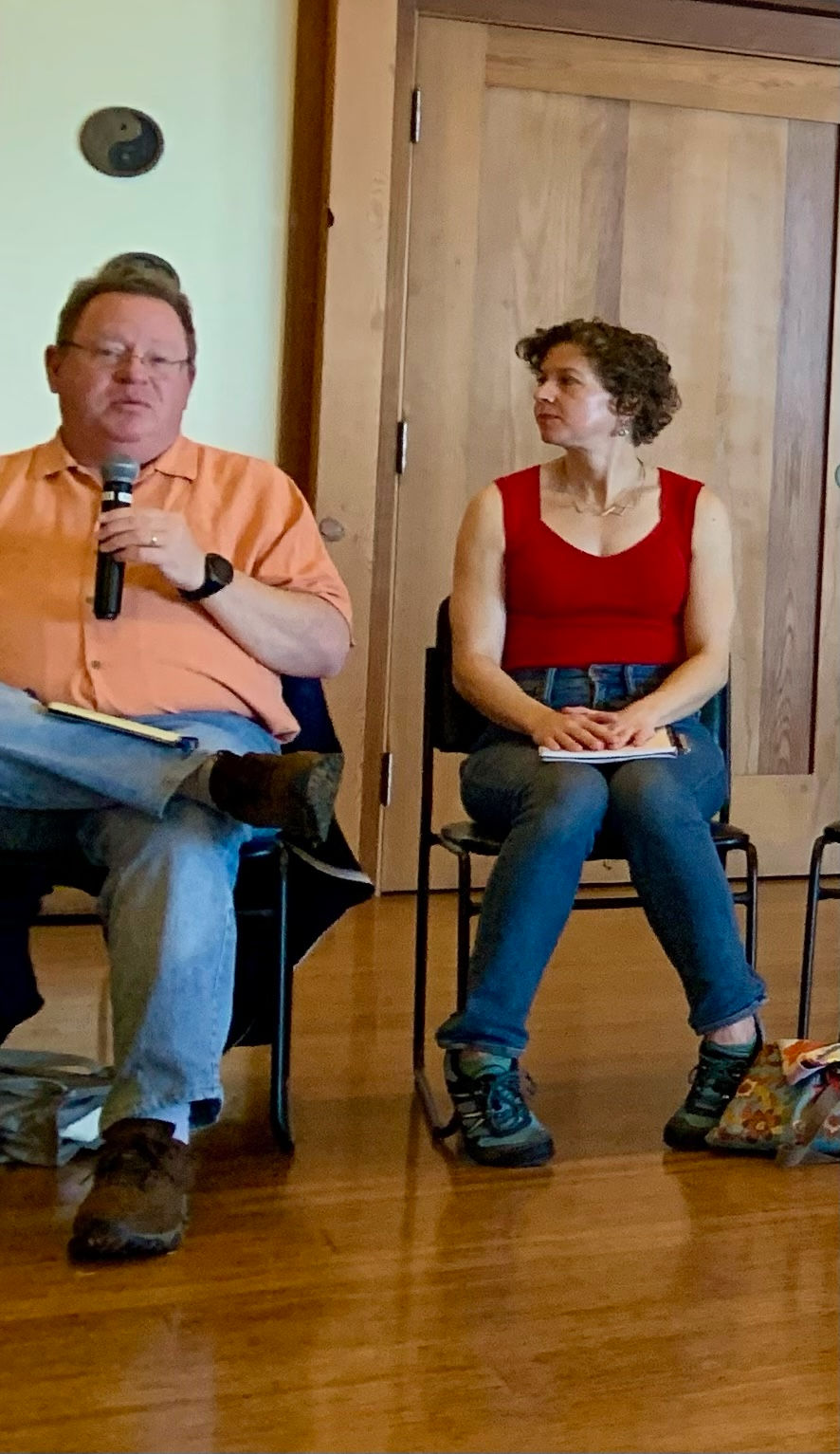OCEANS 22: Day Two - Treaty Cheaters, Antarctic Krill and Whale Poop
- Evelyn Messinger

- Oct 18, 2022
- 2 min read
Updated: Oct 28, 2022
TUESDAY - OCTOBER 18, 2022
Apologies for the cutesy title – I promise to explain these subjects, which arose on the morning of Tuesday Oct 18 as part of the Track Two Oceans 22 Conference at Esalen Institute. The discussion, by an illustrious group of specialists who met to discuss Antarctica and its perils, was focused on the fate of two acronyms that mean important things: CCAMLR, (the Commission for the Conservation of Antarctic Marine Living Resources, pronounced Camelar), and CCAMLR’s initiatives called MPAs (Marine Protected Areas).

CCAMLR has been remarkably successful in
keeping that cold continent free of weapons and sustaining its pristine environment. The organization is
constantly trying to create new MPAs, which are the most effective way to prevent fishing fleets and mining
companies from doing their worst.
And “the worst” is the rule, not the exception, when it comes to the wild world of exploiting oceans. Various
fish populations have collapsed, (National Geographic) and things are not getting better. It has been this way for a very long
time, in fact, a truth most clearly illustrated by the history of whaling. Whale populations are a major concern of CCAMLR, and the conversation included their current state and their past.

Blue Whales, Fin Whales and Minke Whales came within a hairsbreadth of extinction in the 1970’s, and many species have not yet recovered. Vladimir Burkanov, currently the Chief Scientist of North Pacific Wildlife Consulting, worked for the Federal Committee of Fisheries of Russia in the Kamchatka region, as a fisheries management enforcement officer, during the Soviet era. He told a fascinating story about how the USSR systematically lied to the International Whaling Commission about the number of whales their whalers were killing, sometimes lowering the number by tenfold. One very brave official saved the real, but hidden documents, and eventually exposed the truth. Vladimir said that, to this day, the widespread cheating by Japan, which everyone is aware of, has never been admitted let alone documented.
What worries this group of scientists, activists and legal experts is that there are constant attempts to undermine the brilliant CCAMLR treaty. “Now you need a consensus to not allow fishing,” one delegate said. Claire Christian, the executive director of ASOC (the Antarctic and Southern Ocean Coalition), has noticed that some countries, most notably China, are attempting to redefine the mission of CCAMLR as calling to ‘balance’ national use of the Antarctic Oceans with conservation – a watering down of the organization’s true mission.
Claire also knows a starting amount about Krill: the tiny and abundant marine creatures that are the basis of the marine food chain, and thus the food chain of the whole world, including us.
Here, she explains the wonders of Krill:
It turns out humans use Krill too:
And finally, can you imagine how complex the food chain is around Krill? Well, even whale poop comes into that picture:
So next time you feed your cat, you can think about whale poop, and the food chain…







